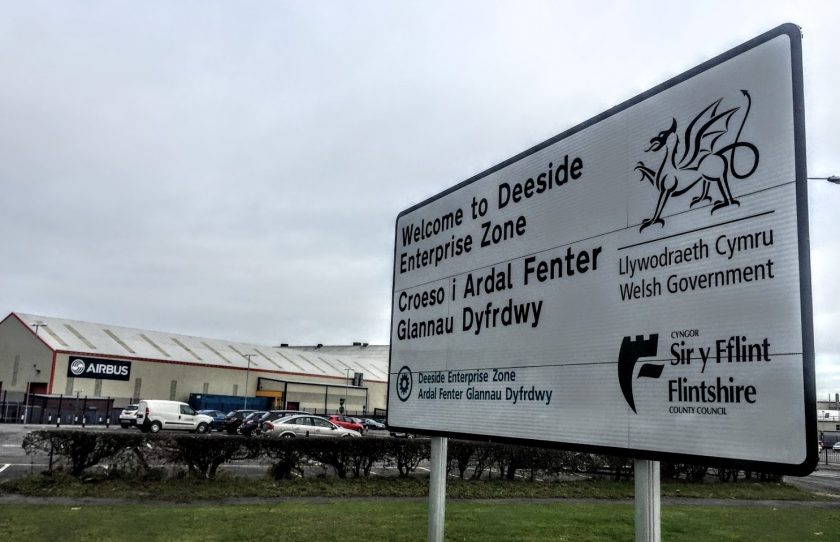Airbus calls for “lengthy-transition period” during Brexit

Airbus has called for a “lengthy-transition period” during Brexit and says that not reaching a deal with the EU would have significant consequences for the UK business and its supply chain.
The company said it’s vital the UK and EU agree on the terms of a transitional arrangement as soon as possible and said Airbus in the UK would be put at an competitive disadvantage by a trading and regulatory cliff edge.
The call comes in a written submission from Airbus ahead of an UK Government select committee inquiry into the Impact of Brexit on aerospace industry on Tuesday.
Airbus says if costs increase as a result of the UK leaving the EU, this will inevitably impact future UK investment decisions.
The company is structured around a four ‘home-country’ model which relies on the seamless flow of goods, people and intellectual property across France, Germany, the UK and Spain.
Airbus “relies on a highly integrated supply chain and it’s crucial the UK business can move components and equipment across borders quickly and efficiently.”
“New checks at UK/EU borders would cause significant disruptions and delays, as well as additional administrative complexity and increased costs.”
Airbus needs its UK employees to be able to move across borders, at short-notice, to fix issues that emerge on the production line.
“Introducing new visa requirements for these cases post-Brexit will lead to potential delays and costs in moving skilled employees to where the business needs them the most.”
Airbus employees undergo around 80,000 business trips per year between the UK and the EU, the company also has around 1,900 staff on ‘cross-channel’ expatriation contracts with around 1300 UK employees working elsewhere in the EU and 600 EU employees in the UK.
Research & Development
The company has also raised concerns over the future of EU-funded research programmes.
“If no deal is reached and the UK can no longer apply for EU research funding, Airbus’ business in the UK will lose out. While other parts of the company, based in the EU, will continue to be eligible for such programmes, parts of the UK business would be unable to participate in cross-border collaborations and will, as a result, miss out on research that could underpin future UK capabilities.”
“It is vital in the negotiations that the UK secures continued access to these programmes to avoid highly skilled UK jobs and research moving to EU member states.
Also at risk would be the investment already made by the UK in these programmes, that often have delivered a greater return to the economy than the initial investment.”
Ahead of the meeting on Tuesday, Rachel Reeves MP, Chair of the Business, Energy and Industrial Strategy Committee said:
“Aerospace is an international business. In design, manufacture and regulation, the UK aerospace industry benefits and relies upon European integration.
As a Committee, we will want to explore what type of Brexit deal is in the interest of the aerospace industry and what the consequences of a no deal would be for this sector.
In seeking to negotiate a Brexit deal that is in the national interest, the Government must ensure the country’s key industries, including aerospace, are in a position to prosper in our new relationship with the EU.”
ADS is the national trade association for the UK’s aerospace, defence, security and space industries said the UK must avoid a ‘No Deal’ scenario and remain an EU Member State during any transition:
“The ‘No Deal’ scenario is the worst possible outcome for the UK aerospace sector, as it would severely disrupt deeply-integrated, pan-European supply chains, workforces and R&D programmes.”
“Maintaining the UK’s status as an EU Member State during a one-step transition period is the only way to avoid all cliff edges and allow time for the UK to plan forthe consequences of leaving the EU.”
data.parliament.uk/writtenevidence
Spotted something? Got a story? Send a Facebook Message | A direct message on Twitter | Email: [email protected] Latest News








